Here at Wrong Direction Farm every week we serve up two tons of organic feed to the chickens out on pasture. Getting the feed out to the birds has always been a challenge, especially when the chickens are on pastures far from the road. We have tried all sorts of methods for bringing the feed out to the chickens, including wooden bins, 55 gallon barrels, and gravity wagons.
Since we make sure our chickens are constantly on the move to fresh grass, this requires the feed supply to move along with the chickens. We need to be efficient in our labor and we especially don’t want to waste expensive certified organic feed to spillage or spoilage.
After messing around with different unsatisfactory systems, I’ve settled a solution that actually does what I want: a steep-sided hopper bin on a stout trailer base. I’ve built one of these trailers each year for the past three years. This week I finished building the third feed bin trailer. I’m quite happy with them. When they are empty, I bring them to the big bin up near the road, auger in a ton of feed, and then haul the trailer bin out back to the chicken pasture. I can park the trailers next to the chickens, minimizing the distance required to carry the feed into their hanging feeders.
With this most recent trailer, I took some pictures of the fabrication as I went. Follow along for the build.
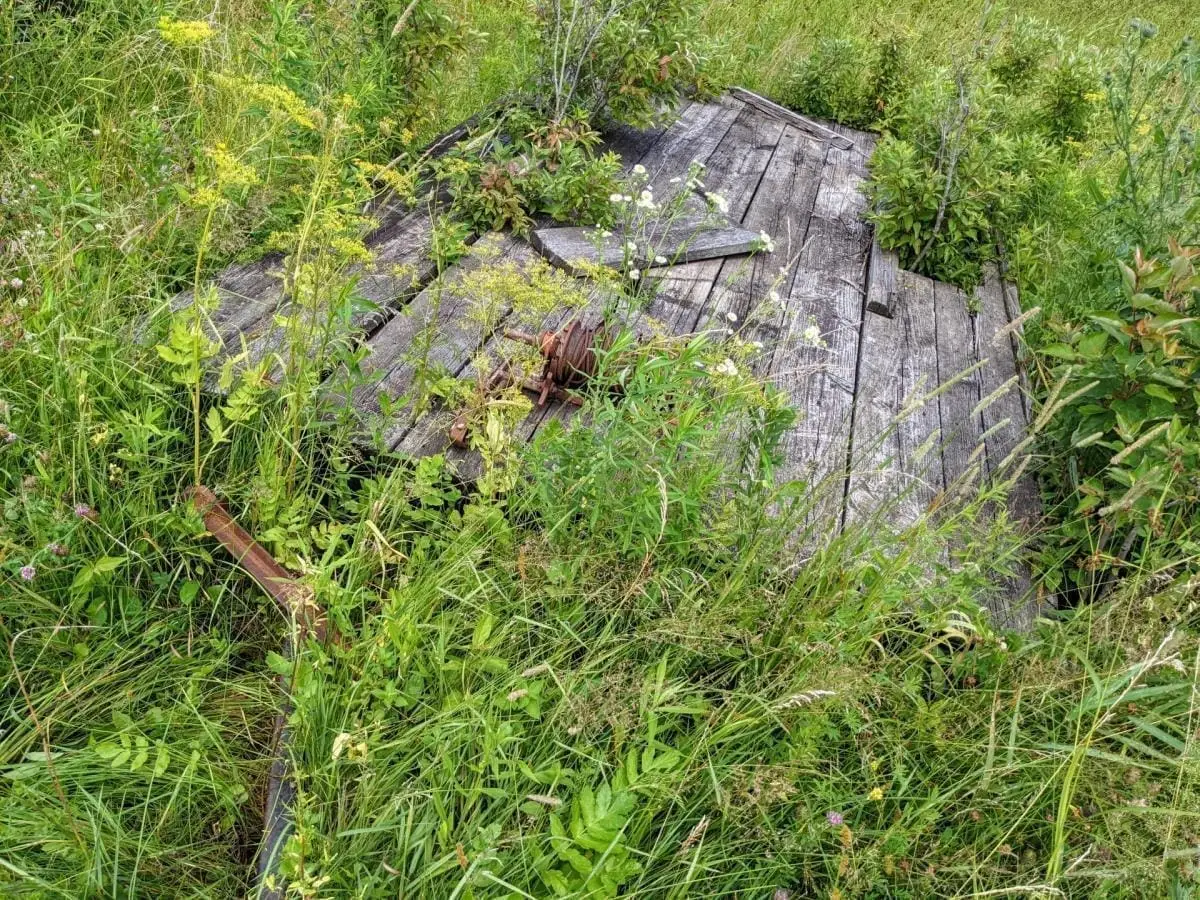
As with many projects here, I start in the junkyard. I needed a stout trailer axle and my neighbor let me drag an old wreck out of the weeds. The donor trailer fell apart as it limped home behind the tractor, with the wheels seized and one tire blown out. But it had a heavy duty drop axle, just the right size for my project. With a lot of torching, cutting, sledge-hammering, and a little finesse, I had my axle.
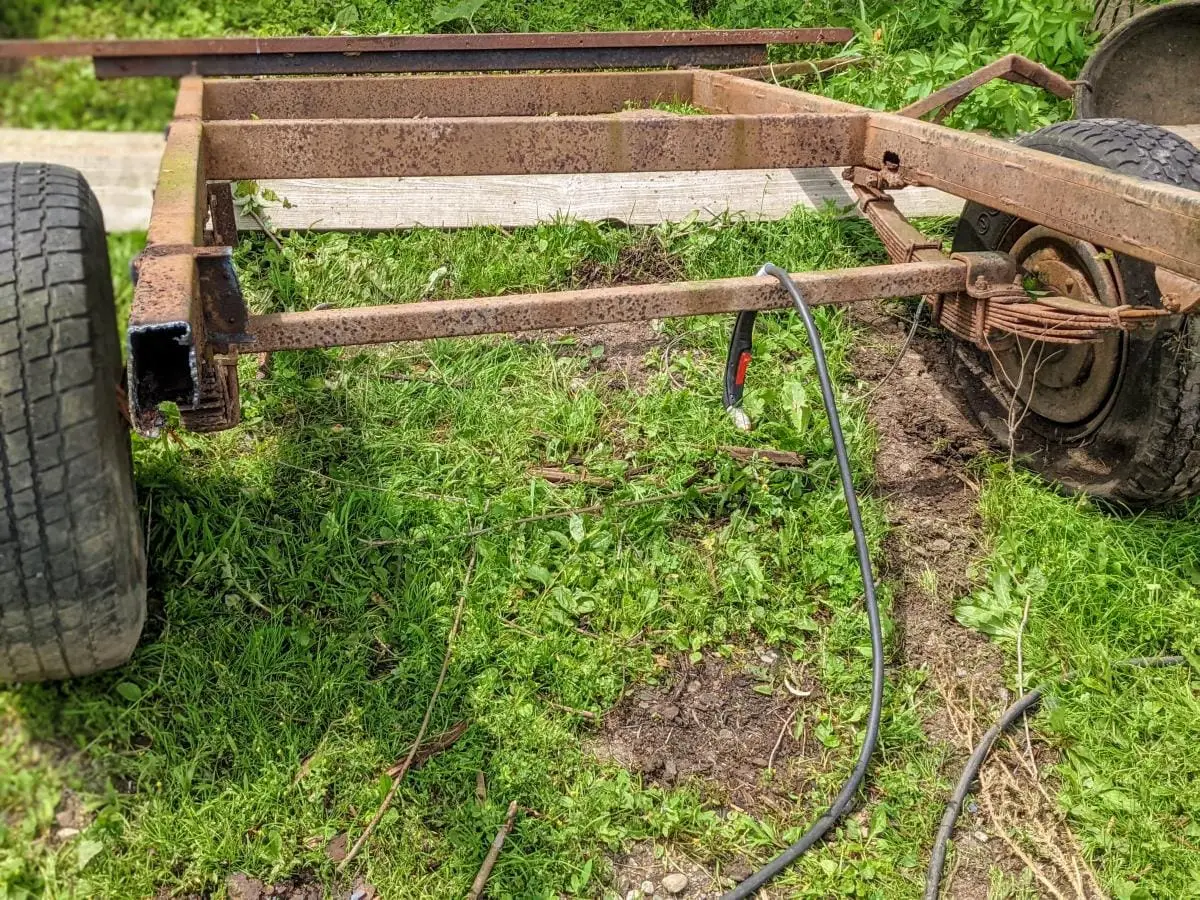
I have been building trailer frames out of salvage NY DOT Bridge Rail, a 3×5 box beam section with 1/4″ walls. This is some back-breakingly heavy tubing, entirely overkill. But the price is reasonable and the material is hot dipped galvanized so it should have some good longevity.
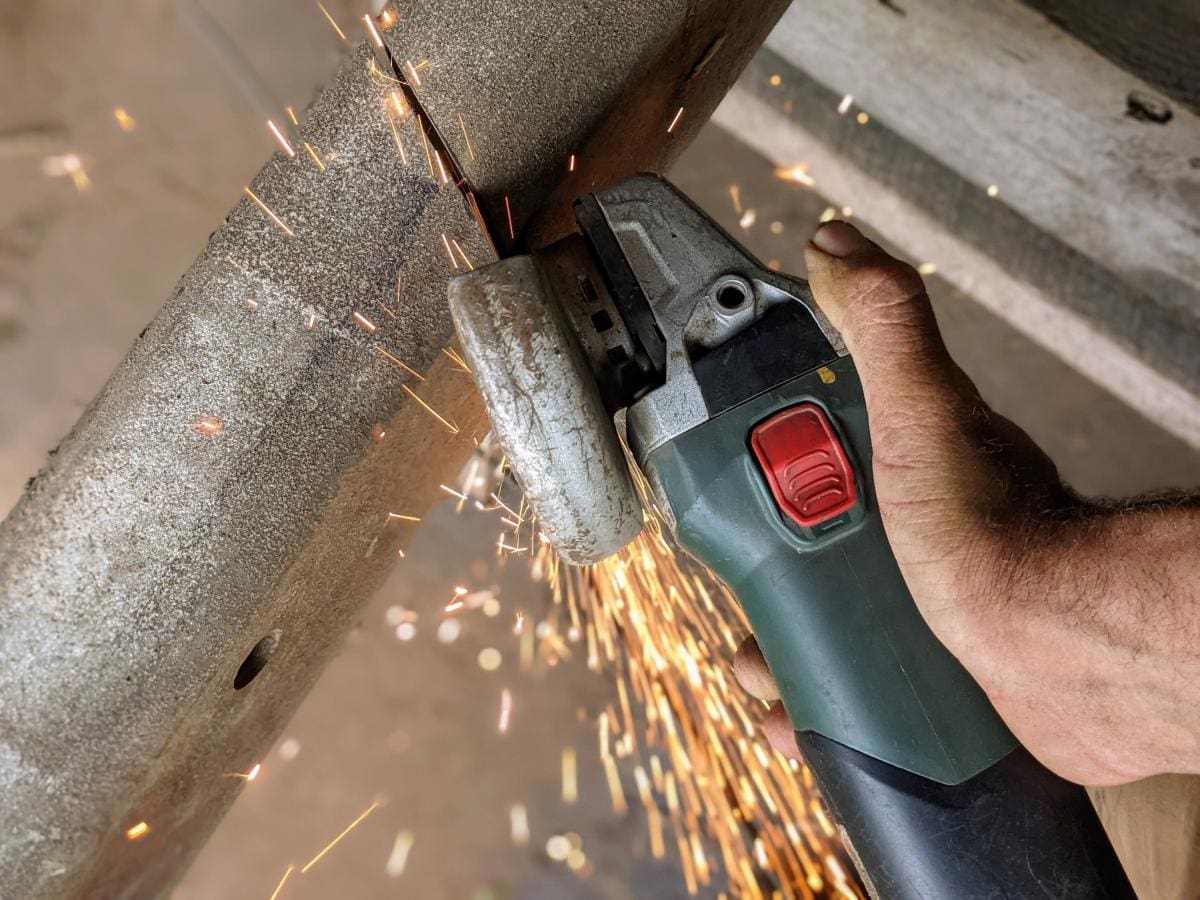
During the project we had a heavy rain that flooded the garage. This happens regularly during the winter, covering the floor with a layer of ice, but we don’t often experience flooding during the summer. In the next photo I’m finishing the frame welding with a little leftover mud drying on the floor.

All the parts being ready, I welded the axle to the trailer frame, and then welded the legs of a 1.5 ton feed hopper bin to the topside. A little wood decking went on the bottom (recycled from an old chicken pasture shelter), and that completed the project.
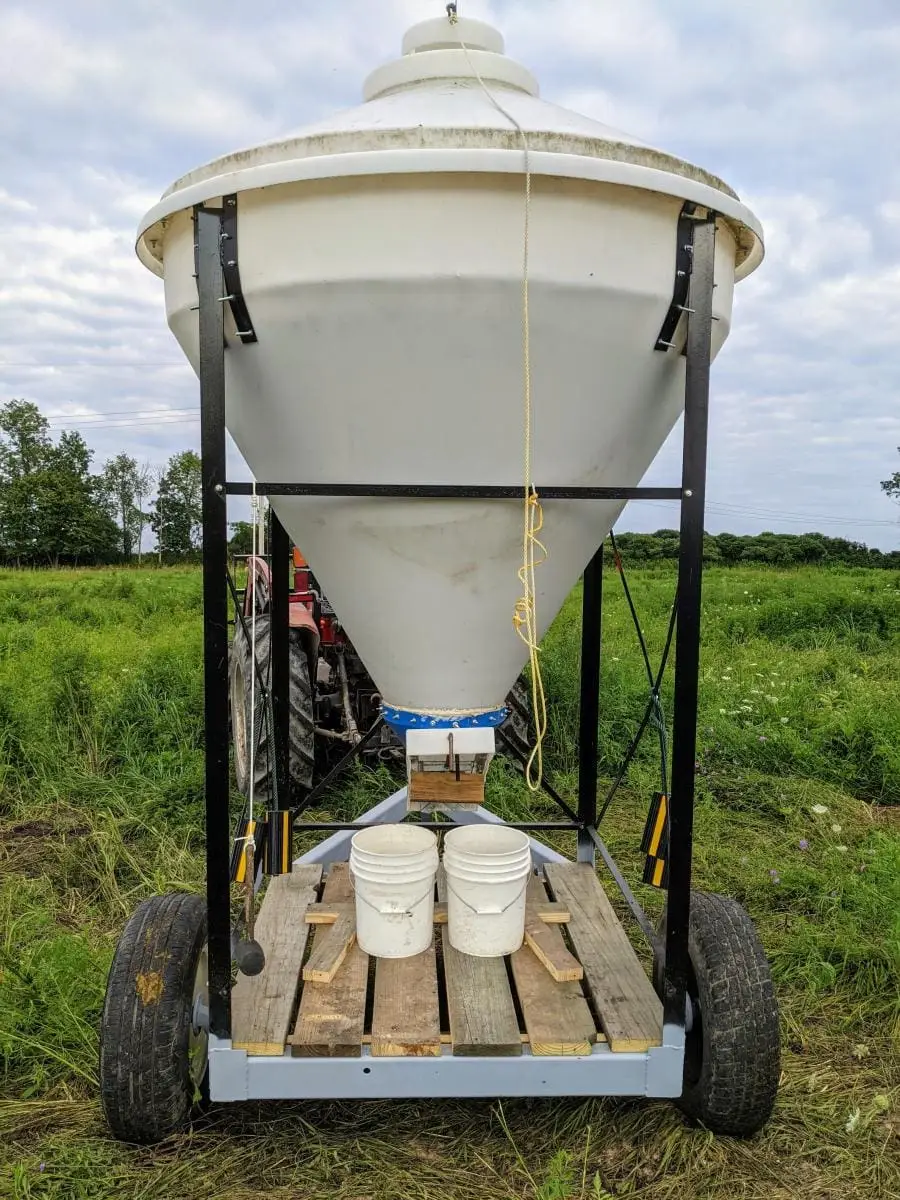
Unlike the gravity wagons and totes we used to use, I prefer these steep-sided bins for the ease with which they empty. I do include a mallet with each trailer (notice it dangling on the left from a white rope) to whack the side of the bin if the feed gets too compacted on the ride out to the pasture. But after it starts flowing we generally don’t need to use the mallet.
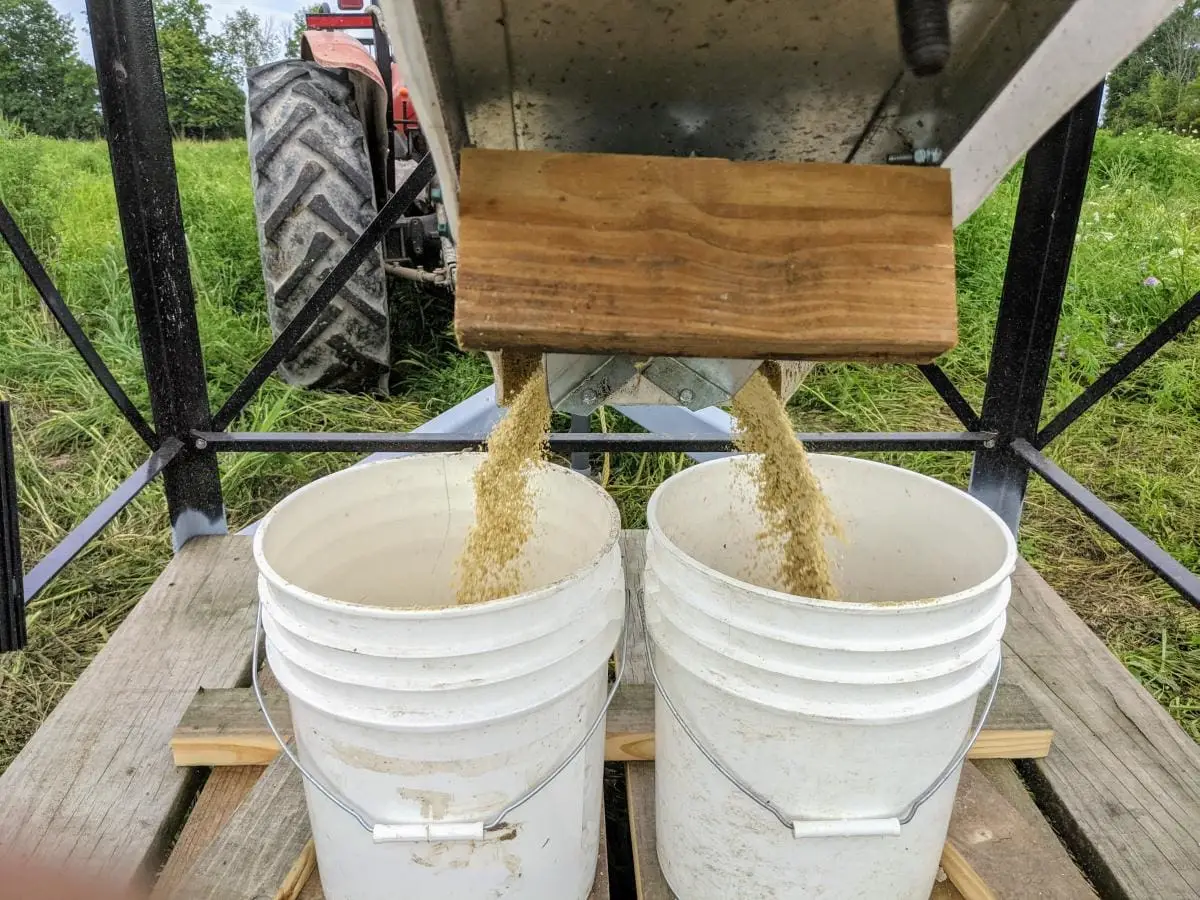
I built a splitter into the discharge chute so we can fill two buckets at once. Carrying buckets around tends to be easier if I have one in each hand to balance the load, so it only makes sense to fill them both at the same time. The little wooden blocks on the deck allow me to position the buckets directly beneath the chute.
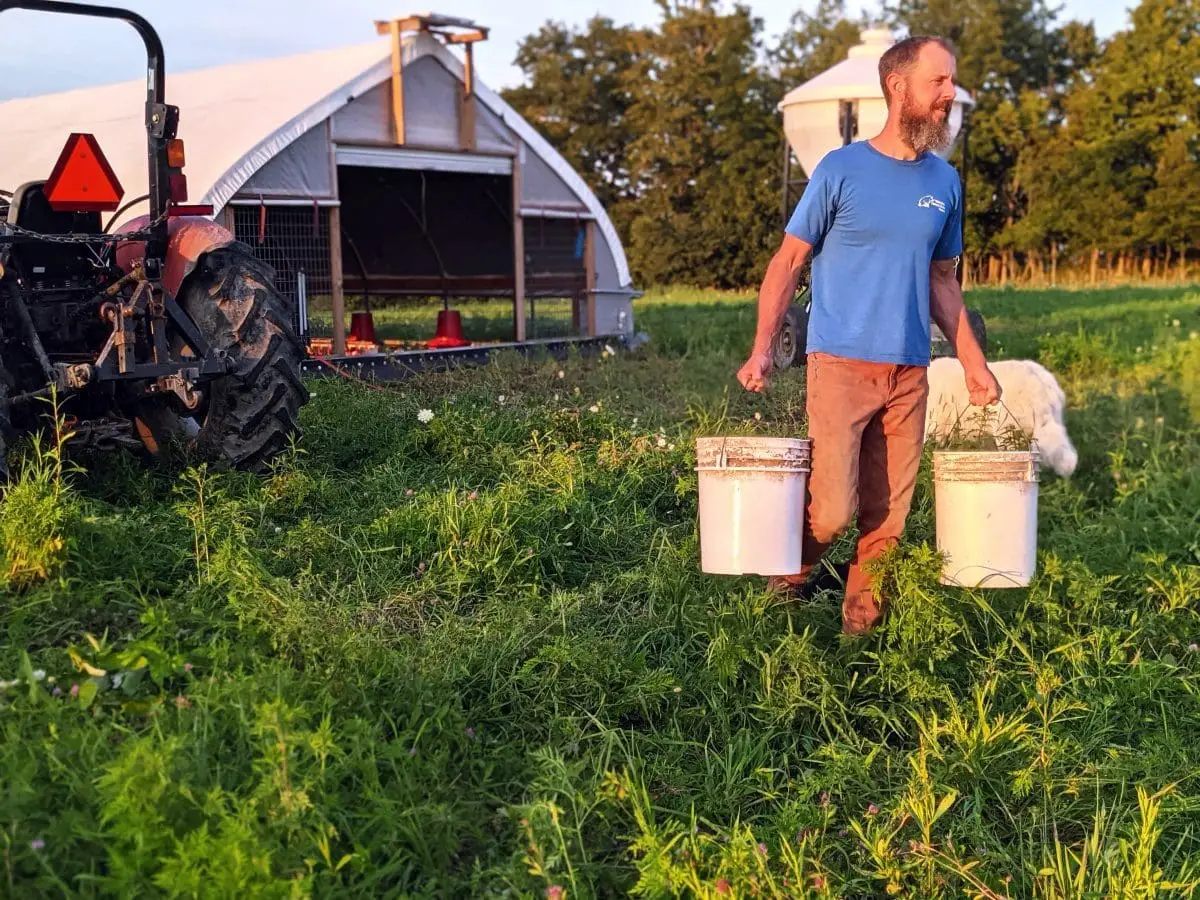
These bins are definitely top heavy, so I’d caution anyone copying the design to think carefully about how these might be used. For safety, I don’t fill my bins entirely. I also make sure that I travel in straight lines up and down slopes, avoiding cross-slope travel and especially avoiding turning on slopes. When I park the trailers on slopes I use wheel chocks. I always leave them with the tongue pointing downhill to avoid the possibility of overturns.

4 thoughts on “A Better Way To Bring Feed To Chickens On Pasture”
Wondering where you sourced the white bin from?
Paul – these bins are from Polydome. I think they have a dealer network, so they might be able to link you to a supplier near you. We’ve got a bunch of these bins and have been happy with them.
Thanks, Dave
absolutely fascinating. thank you for taking the time to educate us as well as nourish us
Thanks Alicia!